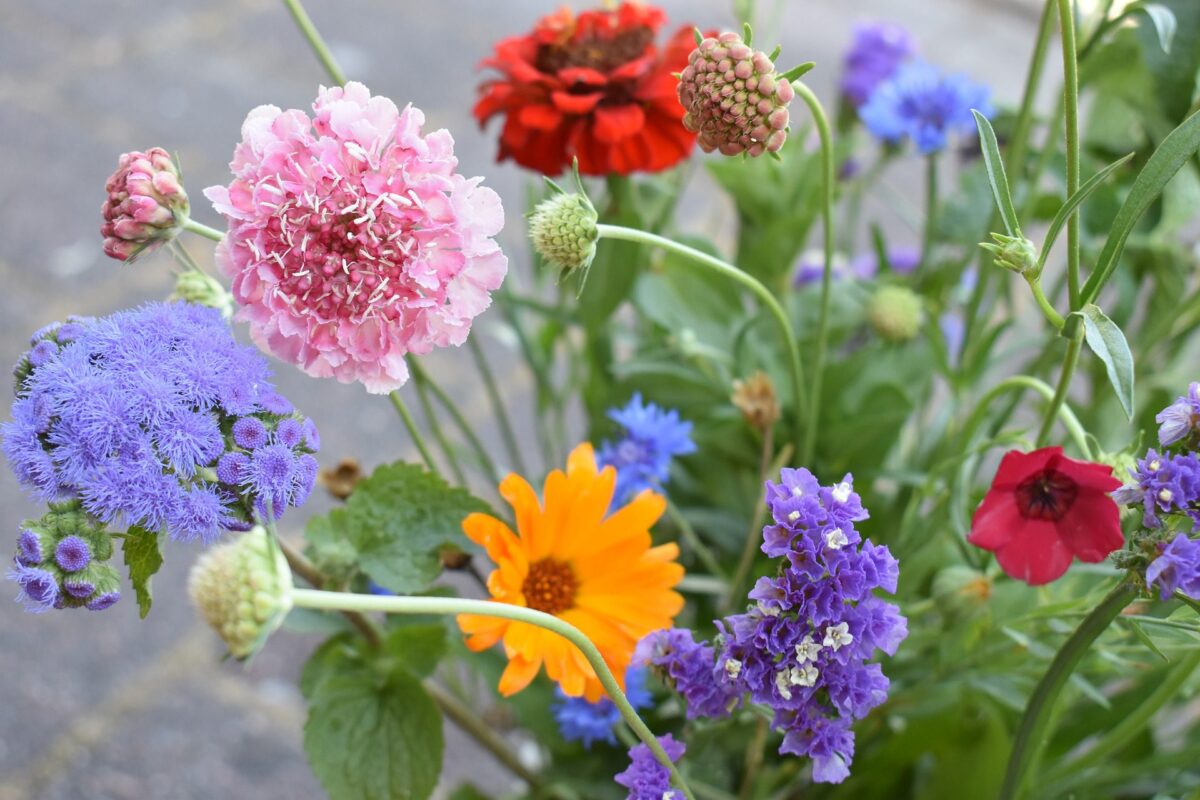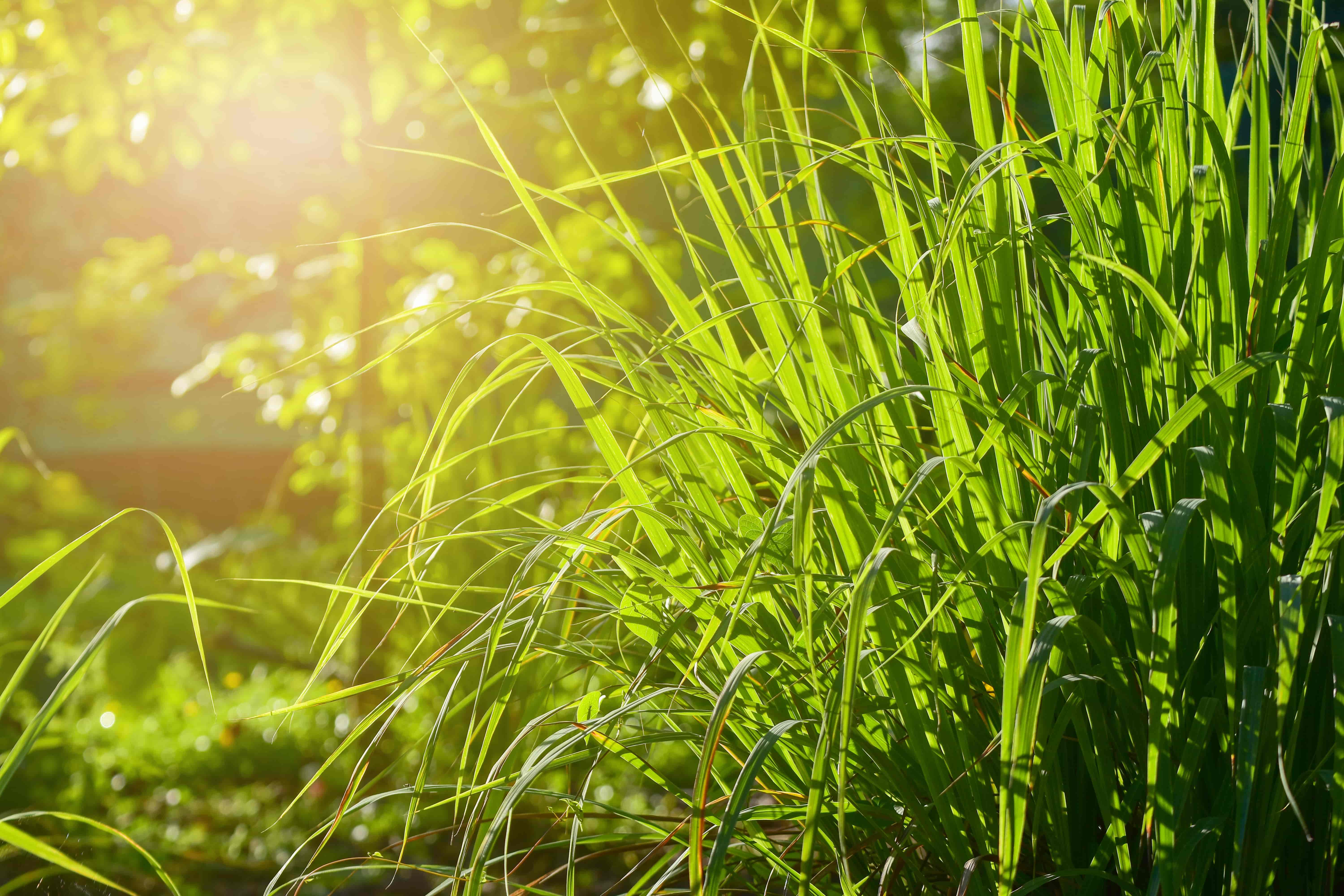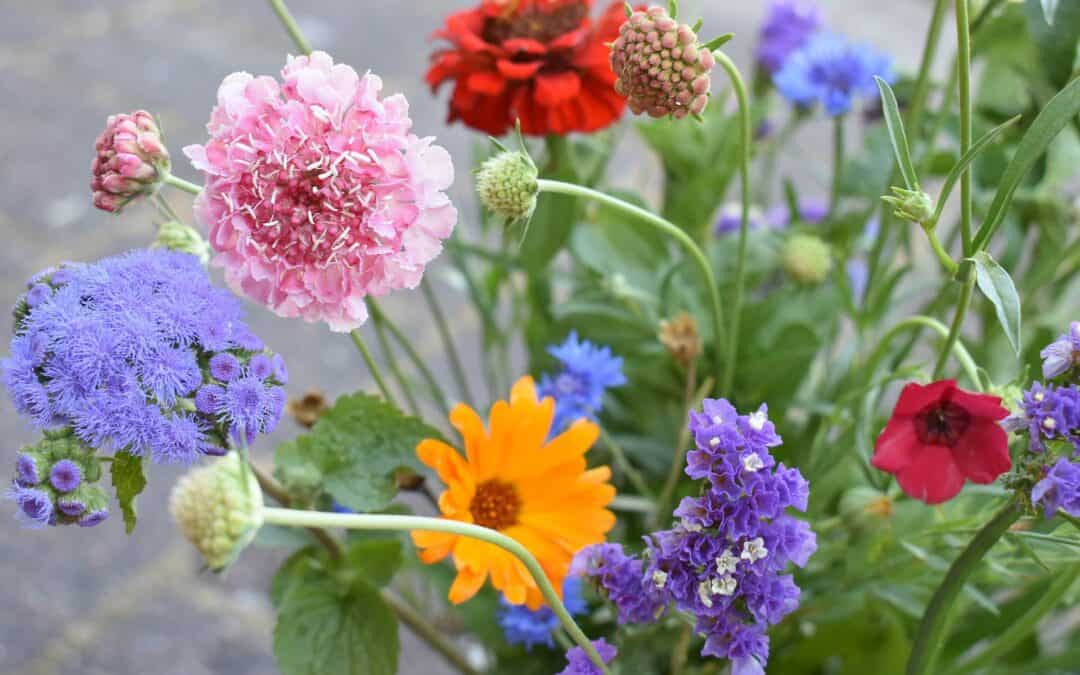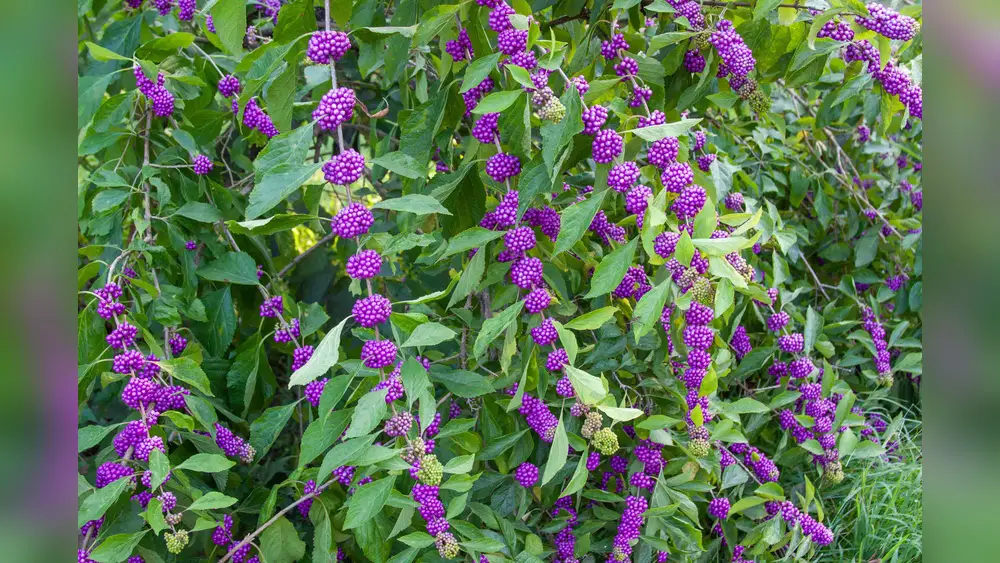Are mosquitoes turning your Florida backyard into their favorite hangout spot? You’re not alone—and luckily, you don’t have to rely solely on sprays or chemical repellents to keep them at bay.
By choosing the right plants, you can create a natural shield that helps repel these pesky insects while adding beauty and fragrance to your outdoor space. You’ll discover the best plants that thrive in Florida’s warm climate and are proven to help keep mosquitoes away.
Ready to enjoy your yard without the constant buzzing and bites? Let’s dive into the top mosquito-repelling plants perfect for your Florida home.
Mosquito Behavior In Florida
Mosquitoes in Florida are more than just a nuisance. Their behavior shapes how we live outdoors. Understanding their habits can help in choosing the best plants to repel them. Florida’s warm and humid climate creates ideal conditions for mosquitoes to thrive. Knowing when and where they are most active guides effective prevention.
Peak Mosquito Seasons
Mosquitoes are active year-round in Florida. The busiest season runs from May through October. Warm temperatures and frequent rains create breeding grounds. Standing water from storms or irrigation feeds their population. The peak season sees a sharp rise in mosquito numbers. This period demands extra caution outdoors. Planting mosquito-repelling plants during these months can reduce bites.
Active Times Of Day
Mosquitoes prefer low light hours. They are most active at dawn and dusk. These times offer cooler temperatures and less wind. Mosquitoes rest during the hot midday hours. Early morning and evening outdoor activities face higher mosquito risk. Using plants that repel mosquitoes near patios helps at these times. Knowing their active hours can guide outdoor plans.
Top Mosquito-repelling Plants
Mosquitoes are a common nuisance in Florida’s warm climate. Planting mosquito-repelling plants can reduce their presence naturally. These plants release scents that mosquitoes dislike. They add beauty and function to gardens and patios. Here are some of the best plants to keep mosquitoes away in Florida.
Citronella
Citronella is famous for repelling mosquitoes effectively. It grows well in Florida’s warm weather. Crushing its leaves releases a strong scent that mosquitoes avoid. Citronella is easy to maintain and perfect for pots or garden beds.
Lemongrass
Lemongrass contains citronella oil, which keeps mosquitoes at bay. This tall grass thrives in Florida’s heat and humidity. Its fresh lemon scent is pleasant for people but unwelcome by mosquitoes. Lemongrass also adds a tropical look to your garden.
Lavender
Lavender produces a sweet, calming fragrance that mosquitoes dislike. It grows well in sunny spots with well-drained soil. Lavender flowers attract pollinators and add color to your outdoor space. Drying lavender can also be used indoors to repel insects.
Marigolds
Marigolds have a strong scent that mosquitoes avoid. These bright flowers are easy to grow and bloom all summer. Marigolds also repel other pests like aphids and whiteflies. Plant them near doors and windows for extra protection.
Rosemary
Rosemary is a fragrant herb that mosquitoes hate. It grows well in Florida’s warm climate and dry soil. You can use rosemary in cooking and as a natural insect repellent. Its woody scent keeps mosquitoes away from patios and seating areas.
Catnip
Catnip is a powerful mosquito repellent. Studies show it can be more effective than some chemical repellents. It grows fast and spreads easily in sunny gardens. Catnip also attracts beneficial insects like bees and butterflies.
Scented Geraniums
Scented geraniums produce a strong smell that mosquitoes avoid. They come in many varieties with different scents like lemon and mint. These plants do well in pots or garden beds with good sunlight. Their beautiful leaves add charm while repelling pests.
Basil
Basil’s sweet aroma keeps mosquitoes away. It grows easily in Florida’s climate and can be harvested for cooking. Crushing basil leaves releases oils that repel mosquitoes. Plant basil near outdoor seating areas to enjoy fresh herbs and fewer bugs.
How Plants Repel Mosquitoes
Plants repel mosquitoes through natural scents and oils they produce. These scents confuse or mask the odors humans release. Mosquitoes rely on these odors to find their targets. When plants emit strong aromas, mosquitoes avoid the area. This method works well in Florida’s warm climate, where mosquitoes thrive.
Many plants release essential oils that act as natural insect repellents. The oils can be in leaves, flowers, or stems. Some plants must be touched or crushed to release these oils. Others spread scent continuously through the air. Growing the right plants can reduce mosquito bites outdoors.
Essential Oils And Scents
Essential oils in plants like citronella and lemongrass repel mosquitoes effectively. The oils disrupt mosquito sensory receptors. This makes it hard for them to locate humans. Lavender and rosemary also produce strong scents that mosquitoes dislike. Crushing leaves releases more oils and strengthens the effect. Using these plants near patios or doorways helps keep mosquitoes away.
Plant Maintenance Tips
Healthy plants produce stronger scents and oils. Regular watering and sunlight are key for growth. Remove dead or wilting leaves to boost oil production. Prune plants to encourage new growth and maintain shape. Crushing leaves before outdoor use increases mosquito repellent power. Avoid overwatering to prevent mold or fungus. Well-cared-for plants create a natural shield against mosquitoes.

Credit: www.callnorthwest.com
Best Plant Choices For Florida Gardens
Choosing the right plants can help keep mosquitoes away from your Florida garden. Certain plants release scents mosquitoes dislike. These plants grow well in Florida’s warm and humid climate. They also add beauty and fragrance to your outdoor space. Below are the best plant choices for different parts of Florida and pet-friendly options.
Plants For South Florida
South Florida’s tropical climate suits many mosquito-repellent plants. Citronella is a top choice here. It thrives in the heat and humidity. Lemongrass also grows well and smells fresh. Rosemary and basil are great herbs that repel mosquitoes. Marigolds add bright colors and keep bugs away. Plant these around patios or walkways for best results.
Plants For Central Florida
Central Florida has slightly cooler winters but still supports many mosquito-repellent plants. Lavender is popular here with its lovely scent. Catmint and sage work well too. Sweet Annie offers a unique aroma that mosquitoes dislike. Plant these in garden beds or containers. They can survive Central Florida’s climate and repel mosquitoes naturally.
Pet-friendly Options
Many mosquito-repellent plants are safe for pets. Basil and rosemary are gentle and non-toxic. Lemon balm is another good option that pets won’t harm. Avoid plants like citronella and marigolds if your pets tend to chew plants. Always check plant safety before planting near your animals. Choose pet-friendly plants to keep both your garden and pets safe.
Planting And Care Tips
Growing mosquito-repellent plants in Florida requires some care and attention. These plants thrive best with the right soil, sun, and water. Taking proper care ensures they stay healthy and effective at keeping mosquitoes away. Follow these tips to create a lush, pest-free garden.
Ideal Growing Conditions
Most mosquito-repelling plants prefer full sun for at least six hours daily. Well-draining soil helps prevent root rot and supports strong growth. Water plants regularly but avoid overwatering. These plants like warm temperatures, making Florida’s climate perfect. Space plants properly to allow air circulation and reduce dampness. Fertilize lightly during the growing season to boost their health.
Enhancing Repellent Effects
Crushing leaves releases essential oils that repel mosquitoes effectively. Gently rub or bruise leaves before outdoor use to increase their power. Planting a mix of different mosquito-repellent species can create stronger protection. Keep plants healthy by removing dead leaves and trimming regularly. Using pots allows moving plants closer during peak mosquito times. Combining garden plants with other natural repellents can improve results.
Combining Plants For Maximum Protection
Combining different mosquito-repelling plants creates a stronger natural barrier. Each plant emits unique scents that mosquitoes dislike. Growing several together increases the chance of keeping mosquitoes away. The mix also adds beauty and variety to your garden. Planning the right combinations helps maximize protection around your home.
Companion Planting Ideas
Mix citronella with lavender for a fragrant, effective duo. Add rosemary and basil near seating areas to boost defense. Plant marigolds alongside catmint to enhance mosquito repellent effects. Grouping these plants in clusters forms a natural shield. Choose plants that thrive in Florida’s warm climate for best results.
Using Potted Plants Effectively
Place potted mosquito-repelling plants by doorways and windows. Move pots to spots where mosquitoes gather most. Use containers to grow plants that need specific soil or shade. Potted plants allow flexible placement to protect outdoor living spaces. Combine several pots for a layered scent barrier that mosquitoes avoid.
Additional Natural Mosquito Control Methods
Natural plants are a great start to keep mosquitoes away in Florida. Using extra natural methods boosts protection without chemicals. Simple actions with plants can make your outdoor time more comfortable. These methods work well alongside mosquito-repelling plants. Try these easy, natural ways to control mosquitoes around your home.
Crushing Leaves For Oil Release
Crushing leaves of certain plants helps release natural oils. These oils have strong scents mosquitoes dislike. Plants like citronella, basil, and peppermint work best this way. Rub the leaves between your fingers before going outside. The fresh scent creates a small mosquito shield around you. This method is simple and effective for short outdoor stays.
Keep some leaves in your pocket or garden basket. When the smell fades, crush more leaves. It is a natural and quick way to improve mosquito defense. You do not need sprays or chemicals for this. Just a handful of plant leaves can help reduce mosquito bites.
Using Plant-based Sprays
Plant-based sprays provide another natural way to repel mosquitoes. These sprays use oils from plants like lemon eucalyptus or lavender. You can buy ready-made sprays or make your own at home. Mix essential oils with water and a little soap for easy spray.
Spray around your outdoor seating or on your skin carefully. It keeps mosquitoes at bay without harsh chemicals. Plant-based sprays are safe for children and pets. Use regularly during peak mosquito hours, especially at dawn and dusk. This method adds a layer of protection that plants alone cannot give.

Credit: www.hofferpest.com

Credit: www.callnorthwest.com
Frequently Asked Questions
What Plant Repels Mosquitoes In Florida?
Citronella, lemongrass, lavender, rosemary, and marigolds repel mosquitoes effectively in Florida’s warm climate. Planting these helps reduce bites naturally.
What Plant Do Mosquitoes Hate The Most?
Mosquitoes hate citronella the most due to its strong scent. It naturally repels them and grows well in warm climates.
Which Plant Is The Strongest Mosquito Repellent?
Citronella is the strongest mosquito repellent plant, especially effective in warm climates like Florida. Crushing its leaves releases repellent oils.
What Month Are Mosquitoes The Worst In Florida?
Mosquitoes are worst in Florida from May through October. Peak activity occurs at dusk and dawn during these months.
Conclusion
Choosing the right plants helps reduce mosquitoes in Florida yards. Citronella, marigolds, and lavender work well to keep bugs away. Planting herbs like rosemary and basil adds beauty and protection. These plants release scents mosquitoes dislike, making your space more enjoyable.
Place them near seating or doorways for best results. A natural approach means fewer chemicals and safer outdoor fun. Start planting today to create a mosquito-free zone around your home.

